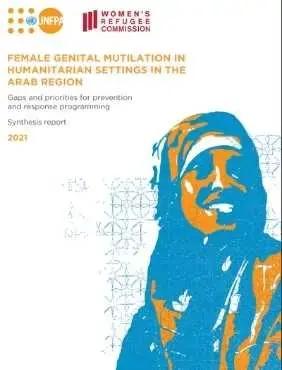Female genital mutilation (FGM) is considered a human rights violation and is condemned in several international conventions and treaties. The Arab region is home to 50 million cases of FGM, accounting for a quarter of global cases.The urgency to end FGM is reflected in its inclusion as a target in the Sustainable Development Goals, as part of goal five to achieve gender equality and empower women and girls. The root causes of FGM are complex and include a mix of deeply entrenched sociocultural, religious, economic, and political factors rooted in gender inequality and discrimination. In the Arab region, there is lack of evidence on the impact of humanitarian crises, in particular the effects of conflict and forced displacement on rates and drivers of FGM. As a result of this lack of data and evidence, FGM is often considered a “secondary” issue in these contexts and is overshadowed by other priorities, leaving women and girls at risk of FGM and a lack of supportive services for survivors. Effective and evidence-based prevention and response interventions are urgently needed to address this critical issue. This report synthesizes learnings to address these gaps from a scoping review and participatory discussions with experts and practitioners working on FGM across the humanitarian–development nexus.



